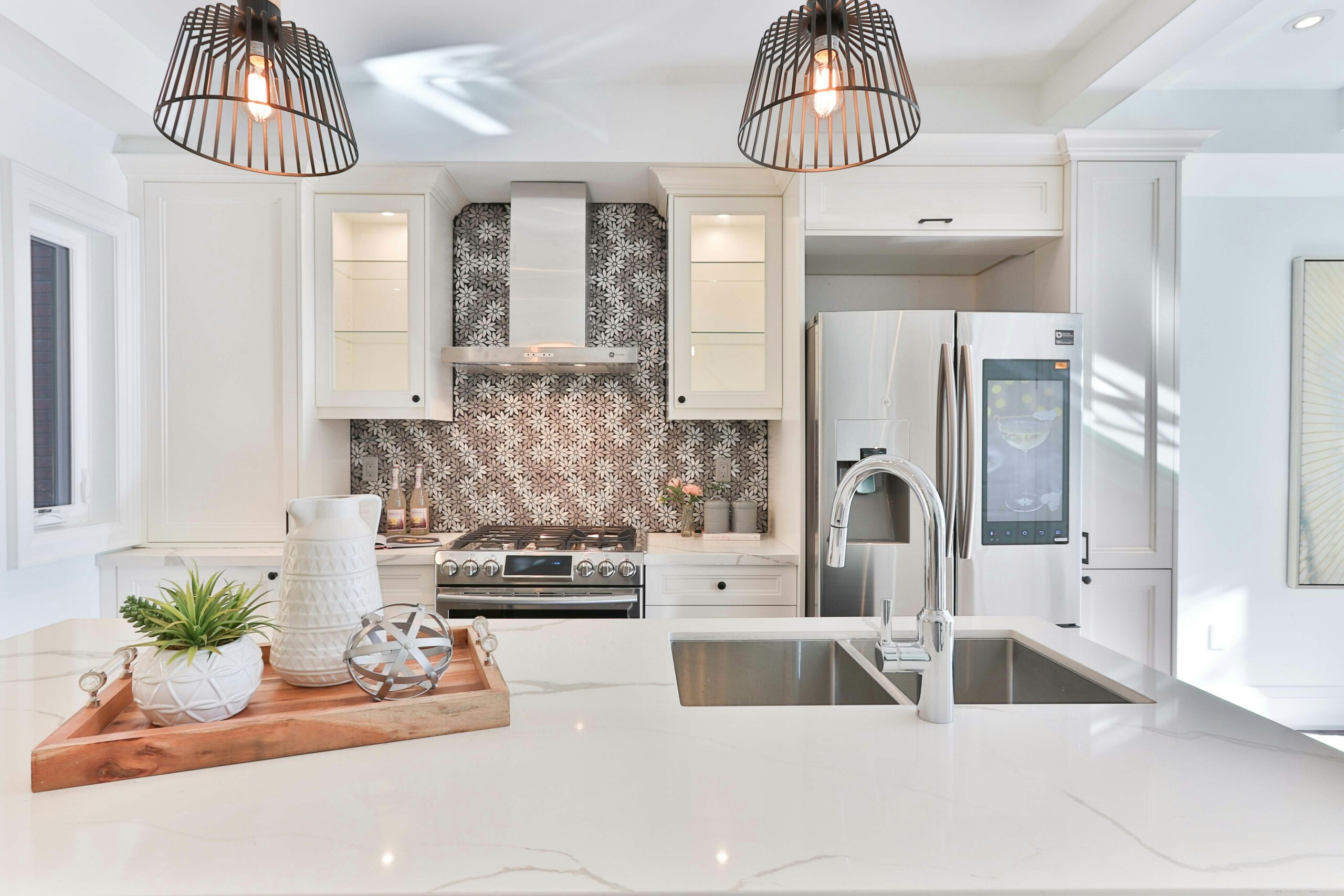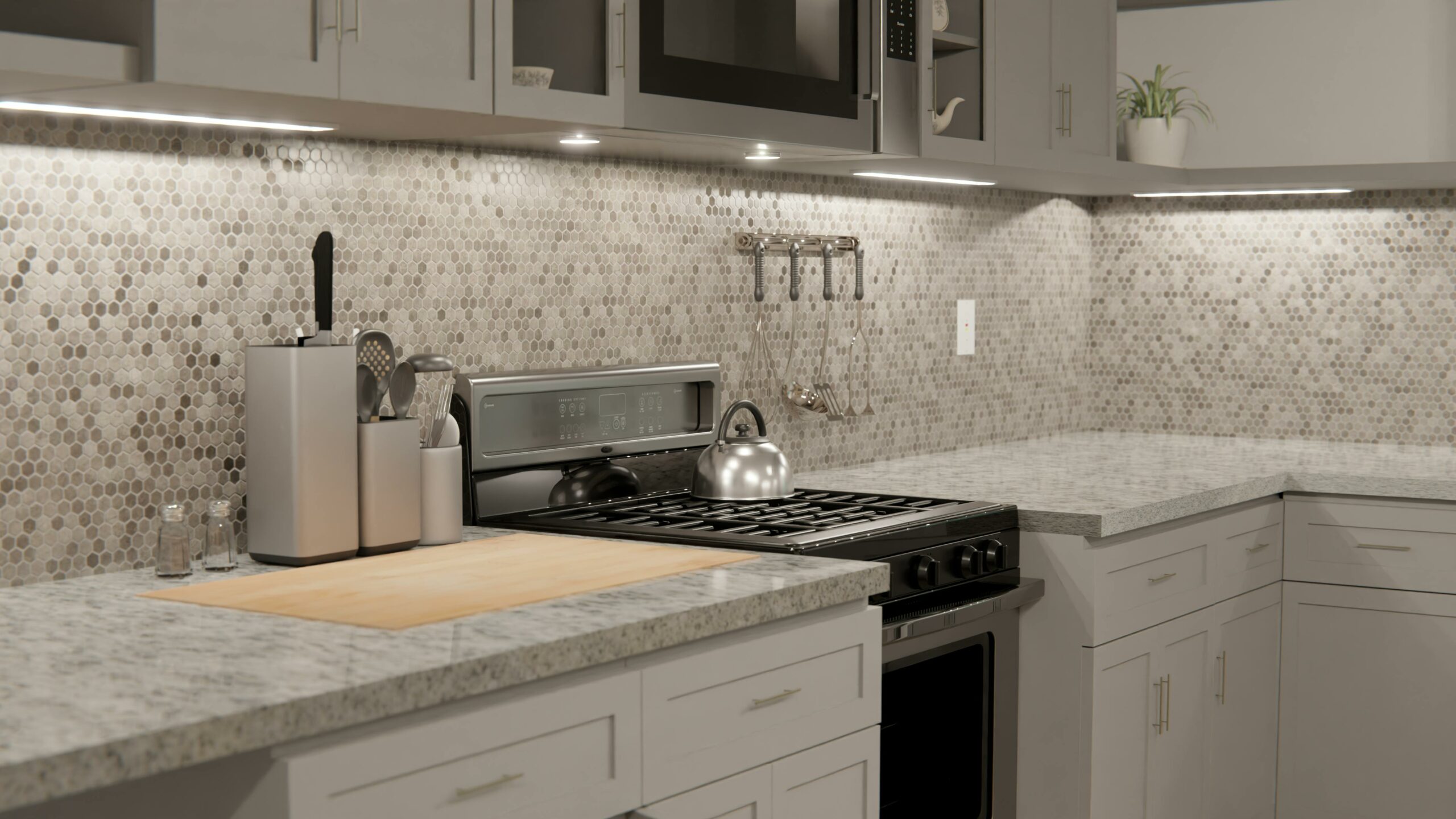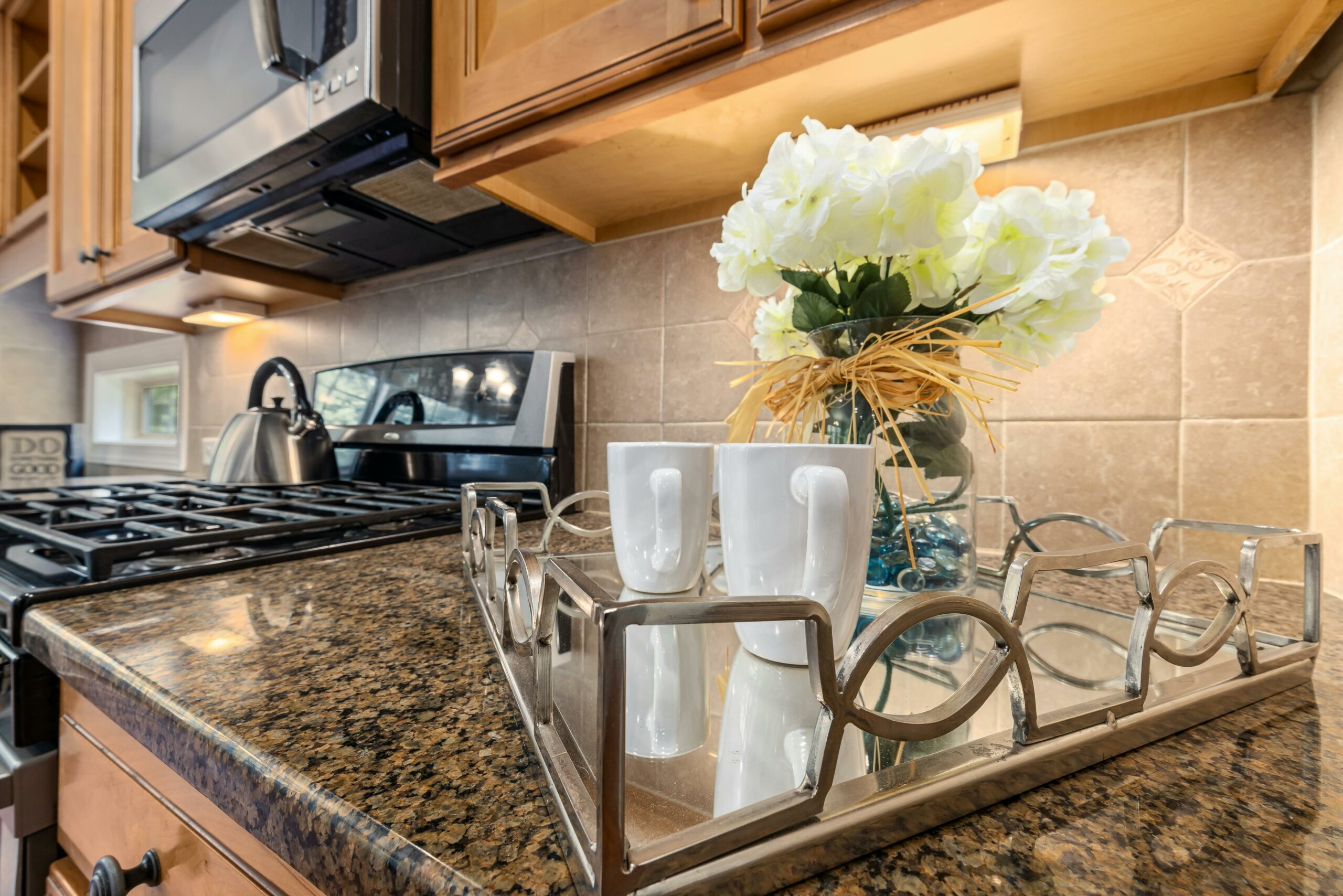Kitchen countertop replacement can entirely transform your cooking space aesthetic and functionality. It may sound like a daunting task, but, with substantial planning and guidance, you can breathe fresh life into your kitchen. This colossal project ranges from choosing the ideal material for your countertop, navigating the cost implications, to maintaining your new kitchen setup long after the job is done.
In this comprehensive guide, we will not only unveil the signs that show it’s time for a switch but also deliver a step-by-step guide to achieving the perfect kitchen countertop replacement. Furthermore, we will analyze the benefits of this project while factoring in the flip side — the possible drawbacks of a DIY undertaking.
You will discover how to leverage the expertise of professionals, catch up with the latest trends in kitchen countertop replacements, and, most importantly, understand how this transformation can boost your home’s value. Welcome aboard as we embark on this enlightening journey towards enhancing your kitchen’s appeal and efficiency.
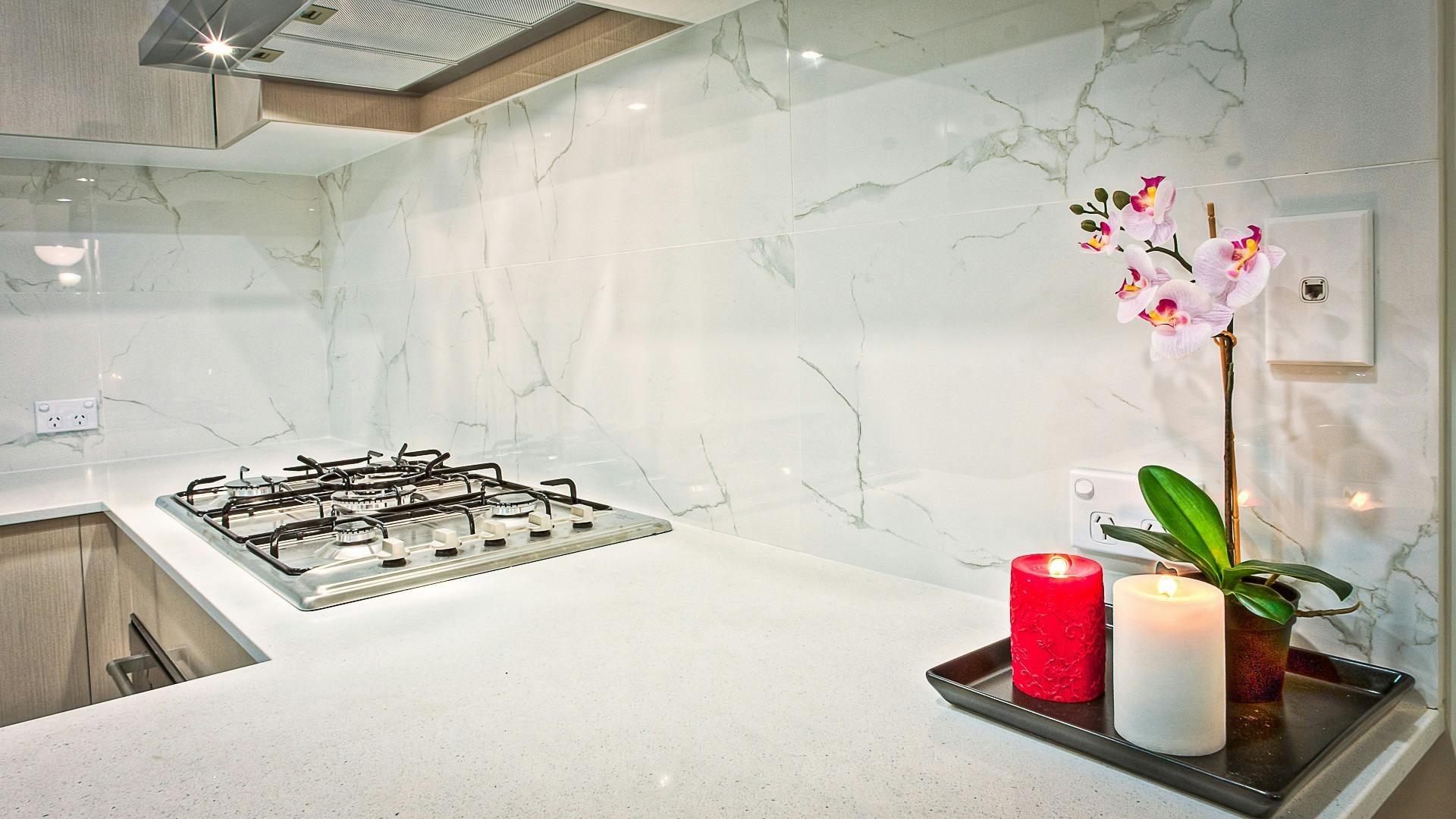
Choosing the Best Material for Kitchen Countertop Replacement
When it comes to replacing your kitchen countertop, one of the most important decisions you’ll have to make is choosing the right material. The material you choose will not only impact the overall look and feel of your kitchen, but it will also determine the durability and maintenance requirements of your countertop.
Factors to Consider
- Budget: Before you start exploring different countertop materials, it’s important to determine your budget. Countertop materials can vary significantly in price, so knowing how much you’re willing to spend will help narrow down your options.
- Style: Consider the overall style and aesthetic of your kitchen. Do you prefer a modern, sleek look or a more traditional, rustic feel? The material you choose should complement the existing design elements in your kitchen.
- Durability: Think about how you use your kitchen countertop. Are you an avid cook who frequently uses knives and hot pans? If so, you’ll want to choose a material that is resistant to scratches and heat.
- Maintenance: Some countertop materials require more maintenance than others. Consider how much time and effort you’re willing to put into cleaning and maintaining your countertop.
Popular Countertop Materials
There are various materials available for kitchen countertops, each with its own unique characteristics and benefits. Here are some popular options:
- Granite: Known for its durability and natural beauty, granite is a popular choice for kitchen countertops. It’s resistant to heat and scratches and adds a touch of elegance to any kitchen.
- Quartz: Quartz countertops are engineered stone surfaces that are extremely durable and low maintenance. They come in a wide range of colors and patterns and are resistant to stains and scratches.
- Marble: Marble countertops are known for their luxurious appearance and timeless beauty. However, they require regular sealing and can be more susceptible to stains and scratches.
- Butcher Block: If you’re looking for a warm and natural look, butcher block countertops are a great option. They’re made from wood and can be sanded and refinished to remove any scratches or stains.
- Laminate: Laminate countertops are an affordable option that comes in a wide range of colors and patterns. They’re easy to clean and maintain but may not be as durable as other materials.
Ultimately, the best material for your kitchen countertop replacement will depend on your personal preferences, budget, and lifestyle. Take the time to research and explore different options before making a decision.
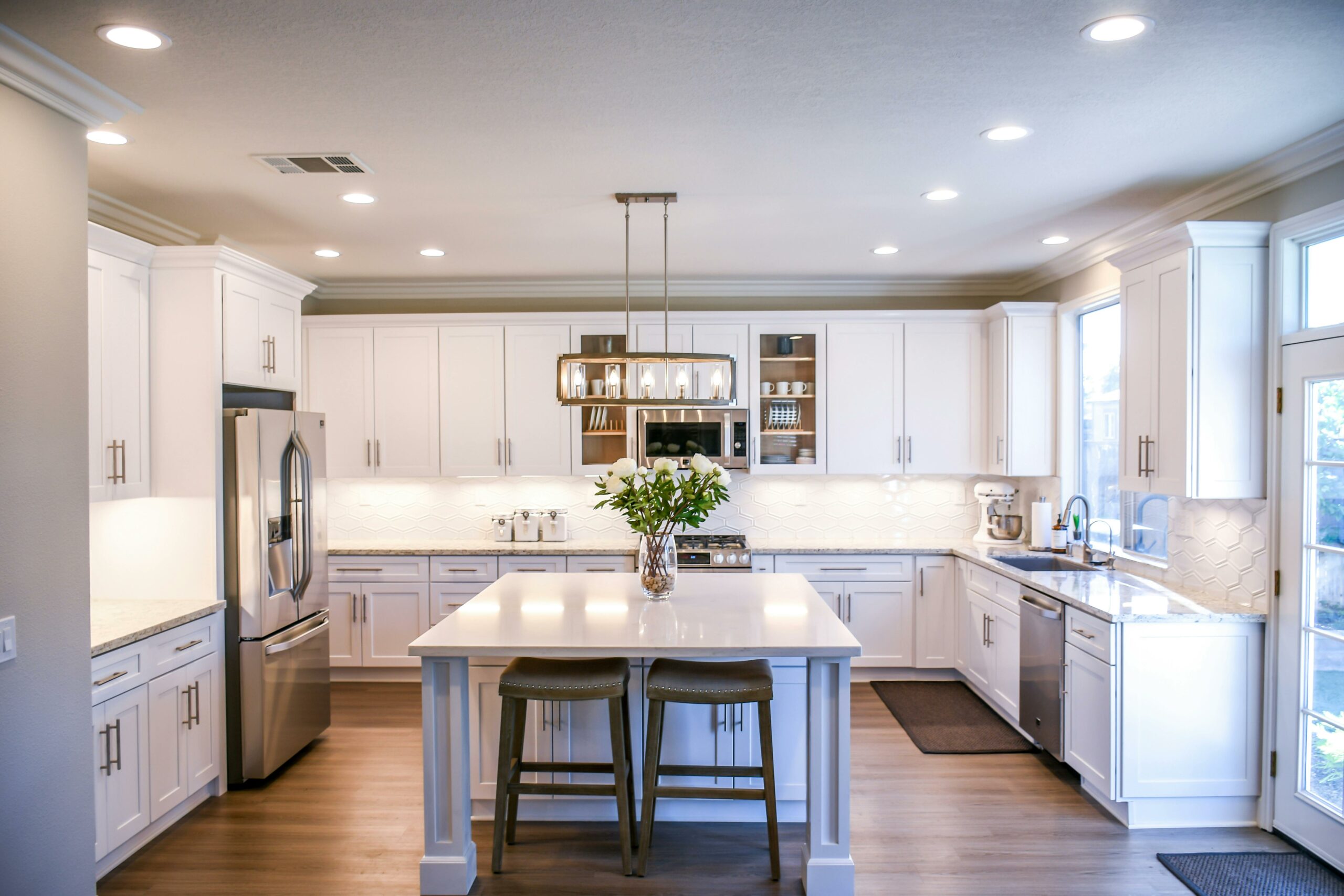
The Cost Involved in Kitchen Countertop Replacement
Replacing your kitchen countertops can be a significant investment, and it’s essential to understand the costs involved before making a decision. Several factors can influence the overall cost, including the material chosen, the size of your kitchen, and whether you choose to hire professionals or do it yourself.
Material Costs
The material you choose for your kitchen countertops will have a significant impact on the overall cost. There are various options available, each with its own price range. Here are some popular materials and their average costs per square foot:
- Granite: $50-$200
- Quartz: $60-$150
- Marble: $60-$200
- Butcher Block: $30-$100
- Laminate: $20-$50
Keep in mind that these are just average costs, and prices can vary depending on the quality of the material and your location.
Installation Costs
If you choose to hire professionals for your kitchen countertop replacement, you will need to factor in the installation costs. The installation fees can vary depending on the complexity of the project and the contractors you hire. On average, you can expect to pay around $40-$100 per hour for professional installation.
Additional Costs
Aside from the material and installation costs, there may be additional expenses to consider. These can include:
- Removal and disposal: If you have existing countertops that need to be removed, you may need to pay for their removal and disposal.
- Plumbing and electrical work: Depending on the design of your new countertops, you may need to hire professionals to handle any plumbing or electrical work required.
- Accessories and finishes: You may also need to budget for additional accessories and finishes, such as sink fixtures, backsplashes, and edge profiles.
It’s crucial to consider these additional costs when calculating the total expense of your kitchen countertop replacement project.
By understanding the costs involved in kitchen countertop replacement, you can make an informed decision and budget accordingly. Remember to consider the long-term benefits and the impact on your home’s value when evaluating the overall cost.
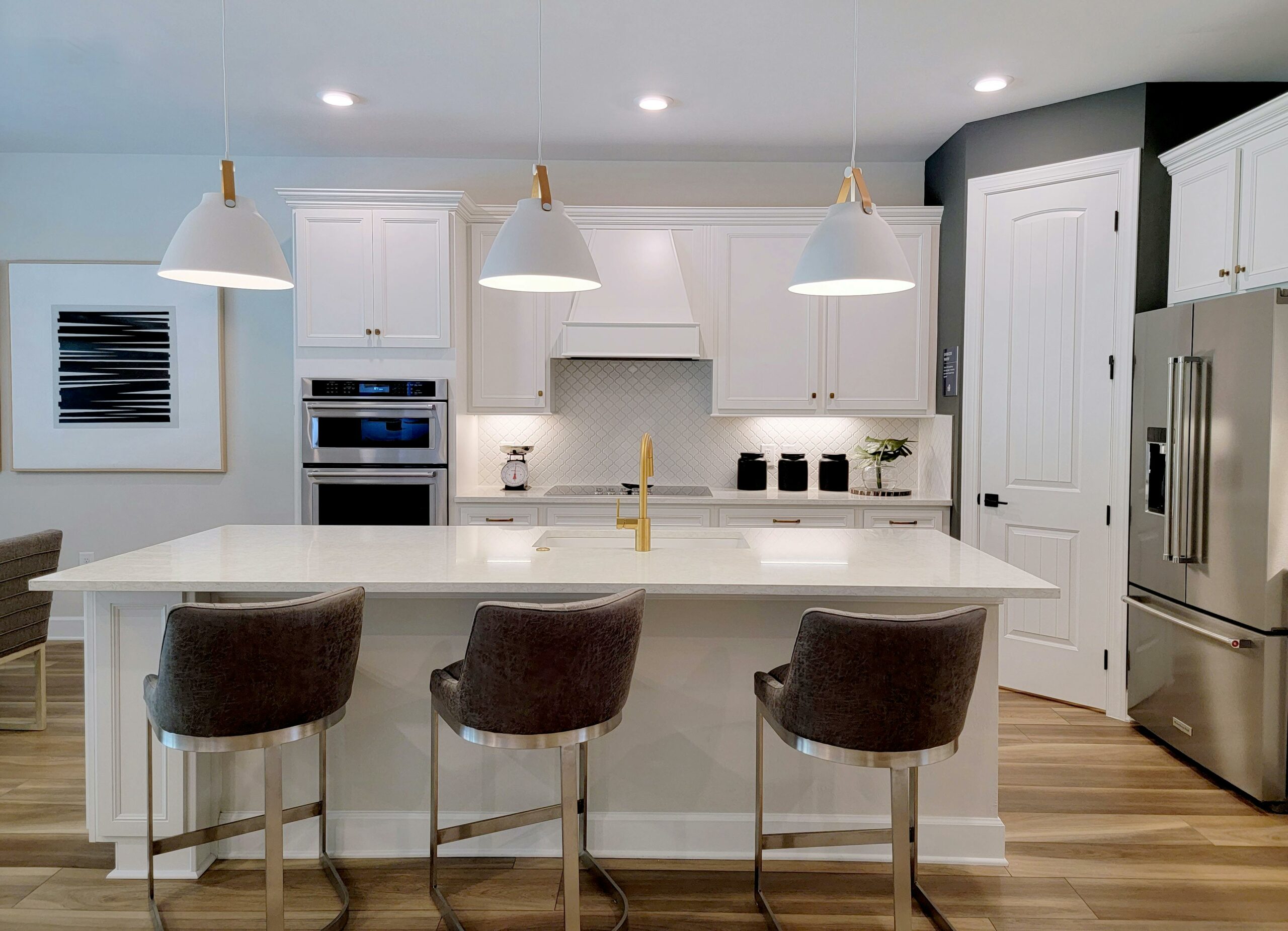
Step-by-Step Guide to Kitchen Countertop Replacement
Replacing your kitchen countertop can give your kitchen a fresh new look and improve its functionality. Here is a step-by-step guide to help you navigate through the process:
1. Measure and Plan
Start by measuring your existing countertop and determining the dimensions of the new one. Consider the layout and design of your kitchen to ensure the new countertop fits seamlessly. Make a detailed plan of the project, including the materials needed and any additional modifications required.
2. Choose the Right Material
Selecting the right material for your new countertop is crucial. Consider factors such as durability, maintenance requirements, and aesthetic appeal. Popular options include granite, quartz, marble, laminate, and butcher block. Research each material and choose the one that best suits your needs and budget.
3. Remove the Old Countertop
Before installing the new countertop, you need to remove the old one. Start by disconnecting any plumbing fixtures and removing the sink. Use a pry bar and a hammer to carefully remove the old countertop from the cabinets. Be cautious not to damage the surrounding walls or cabinets.
4. Prepare the Cabinets
Inspect the cabinets and make any necessary repairs or modifications. Ensure that the cabinets are level and sturdy to provide a solid foundation for the new countertop. Clean the cabinets thoroughly to remove any dirt or debris.
5. Install the New Countertop
Place the new countertop on the cabinets and ensure it fits properly. Use a level to check for evenness and make any adjustments if needed. Apply a bead of adhesive along the top edges of the cabinets and carefully lower the countertop into place. Secure it with screws or brackets as recommended by the manufacturer.
6. Connect Plumbing Fixtures
Reconnect the plumbing fixtures, including the sink, faucet, and garbage disposal. Ensure that all connections are tight and leak-free. Test the water flow and drainage to ensure everything is working properly.
7. Finish and Seal
Apply a sealant to the new countertop to protect it from stains and moisture. Follow the manufacturer’s instructions for the specific material you have chosen. Allow the sealant to dry completely before using the countertop.
By following these step-by-step instructions, you can successfully replace your kitchen countertop and enjoy a beautiful and functional space.
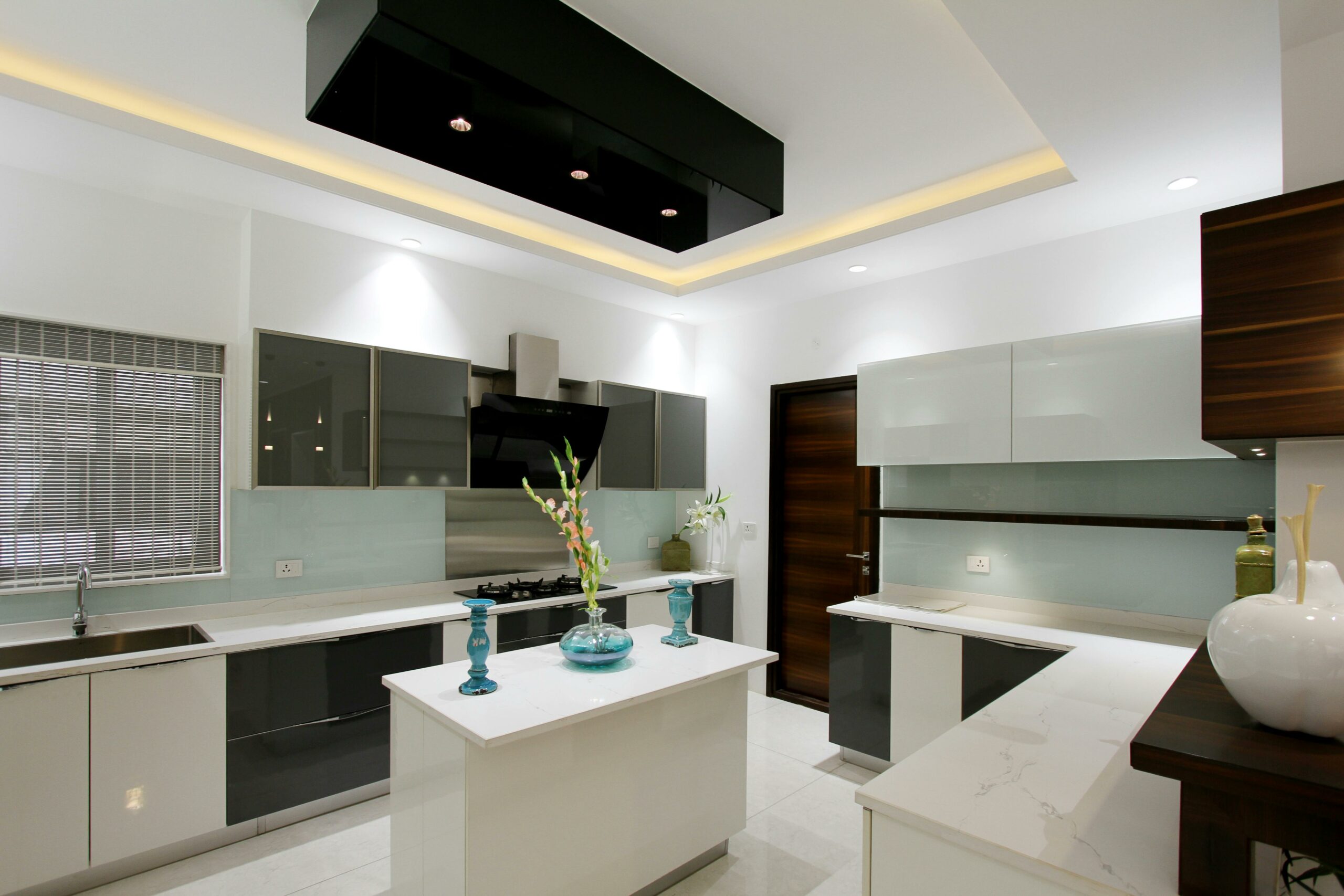
Signs That It’s Time for a Kitchen Countertop Replacement
Over time, kitchen countertops can become worn, damaged, or outdated. If you’re unsure whether it’s time to replace your kitchen countertop, here are some signs to look out for:
1. Visible Damage
If you notice visible damage such as cracks, chips, or stains on your countertop, it may be time for a replacement. These damages not only affect the appearance of your kitchen but can also compromise the functionality and hygiene of the surface.
2. Outdated Style
If your kitchen countertop looks outdated and doesn’t match the overall style and aesthetics of your kitchen, it might be time for an upgrade. Choosing a modern and stylish countertop can transform the look and feel of your kitchen.
3. Difficult to Clean
If your countertop has become difficult to clean and maintain, it may be a sign that it’s time for a replacement. Cracks, stains, and porous surfaces can make it challenging to keep your countertop clean and hygienic.
4. Lack of Functionality
If your current countertop doesn’t meet your needs in terms of functionality, it may be time for a replacement. Consider factors such as the size, layout, and features of your countertop to ensure it supports your cooking and food preparation activities.
5. Faded or Discolored Surface
If your countertop has a faded or discolored surface that cannot be restored, it’s a clear indicator that it’s time for a replacement. A fresh and vibrant countertop can instantly revitalize your kitchen.
6. Water Damage
If you notice water damage, such as swelling, warping, or mold growth, it’s essential to replace your countertop to prevent further damage and ensure a safe and healthy kitchen environment.
7. Lack of Durability
If your current countertop is not durable enough to withstand your daily kitchen activities, it’s time to invest in a more robust and long-lasting option. A durable countertop will save you from frequent repairs and replacements in the future.
By keeping an eye out for these signs, you can determine whether it’s time for a kitchen countertop replacement. Upgrading your countertop can enhance the beauty, functionality, and value of your kitchen.
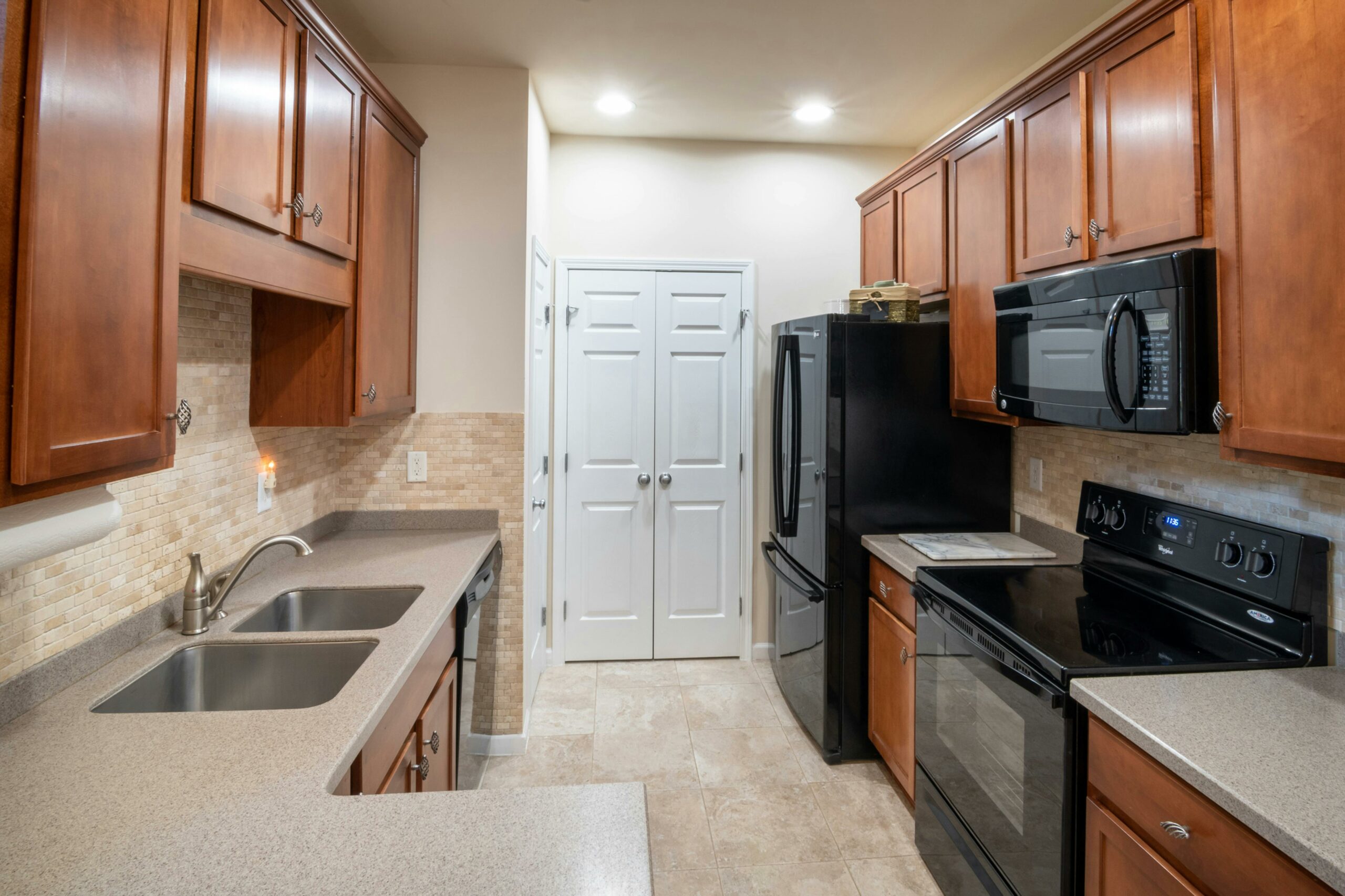
The Benefits of Kitchen Countertop Replacement
Replacing your kitchen countertop can bring numerous benefits to your home. Whether you’re looking to update the look of your kitchen or improve its functionality, a countertop replacement can make a significant difference. Here are some of the key benefits:
1. Enhanced Aesthetics
A new countertop can completely transform the appearance of your kitchen. With a wide range of materials, colors, and finishes available, you can choose a countertop that matches your style and complements your existing décor. Whether you prefer a sleek and modern look or a more traditional and rustic feel, a countertop replacement can help you achieve the desired aesthetic.
2. Increased Functionality
Old and worn-out countertops can hinder your kitchen’s functionality. Cracks, stains, and uneven surfaces can make it difficult to prepare meals and clean up afterward. By replacing your countertop, you can ensure a smooth and durable surface that is easy to clean and maintain. Additionally, you can customize your new countertop with features such as built-in sinks, cutting boards, or additional workspace to enhance the functionality of your kitchen.
3. Improved Durability
Countertops endure a lot of wear and tear, especially in a busy kitchen. Over time, they can become scratched, chipped, or damaged, compromising their durability. By replacing your countertop, you can choose a material that is more resistant to stains, scratches, and heat, ensuring its longevity. This can save you money in the long run, as you won’t have to constantly repair or replace your countertop.
4. Increased Home Value
A kitchen countertop replacement is a valuable investment that can significantly increase the value of your home. Potential buyers often consider the kitchen as one of the most important areas of a house, and an updated and attractive countertop can be a major selling point. It can make your home more appealing and help you command a higher price when it comes time to sell.
5. Health and Safety
An old and worn-out countertop can harbor bacteria and germs, compromising the hygiene of your kitchen. By replacing your countertop, you can ensure a clean and sanitary cooking environment. Additionally, a new countertop can eliminate any sharp edges or uneven surfaces that may pose a safety hazard, especially if you have young children in the house.
Overall, a kitchen countertop replacement can bring numerous benefits to your home, including enhanced aesthetics, increased functionality, improved durability, increased home value, and improved health and safety. Consider these advantages when deciding whether to replace your kitchen countertop.
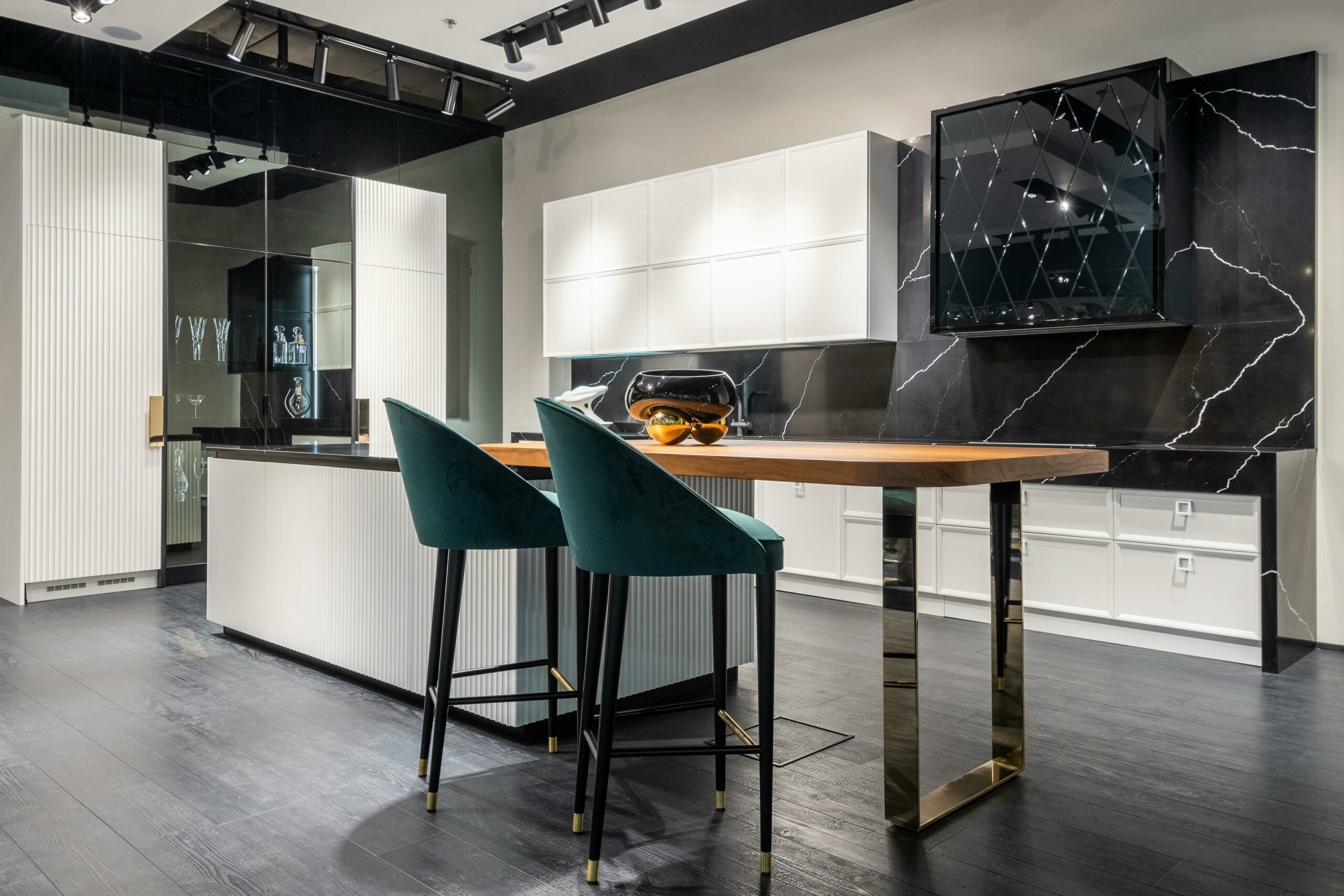
Maintaining Your New Kitchen Countertop After Replacement
Once you have replaced your kitchen countertop, it is important to take proper care of it to ensure its longevity and maintain its appearance. Here are some tips for maintaining your new kitchen countertop:
1. Clean Regularly
Regular cleaning is essential to keep your countertop looking its best. Use a mild soap or a specialized countertop cleaner to wipe down the surface daily. Avoid using abrasive cleaners or scrub brushes that can scratch the surface.
2. Avoid Harsh Chemicals
Harsh chemicals such as bleach or ammonia can damage the finish of your countertop. Be sure to use gentle cleaning products that are specifically designed for your countertop material.
3. Use Cutting Boards and Trivets
Protect your countertop from scratches and heat damage by using cutting boards and trivets. Avoid placing hot pots or pans directly on the surface, as it can cause discoloration or even cracks.
4. Wipe up Spills Immediately
Accidents happen, but it’s important to clean up spills as soon as possible to prevent staining. Use a soft cloth or paper towel to blot the spill, rather than rubbing it, which can spread the stain.
5. Avoid Sharp Objects
Avoid using sharp objects directly on your countertop, as it can cause scratches. Use cutting boards or mats when chopping or slicing to protect the surface.
6. Seal the Countertop
Depending on the material of your countertop, it may require periodic sealing to maintain its integrity. Follow the manufacturer’s instructions for sealing to ensure proper protection.
7. Be Mindful of Heavy Objects
Avoid placing heavy objects, such as pots or appliances, directly on the edges of your countertop. This can cause cracks or chips. Use proper support or padding when placing heavy items on the surface.
8. Regular Maintenance
Perform regular maintenance tasks, such as checking for loose seams or cracks, and addressing them promptly. This will help prevent further damage and ensure the longevity of your countertop.
By following these maintenance tips, you can keep your new kitchen countertop looking beautiful and extend its lifespan. Remember to consult the manufacturer’s guidelines for specific care instructions based on the material of your countertop.
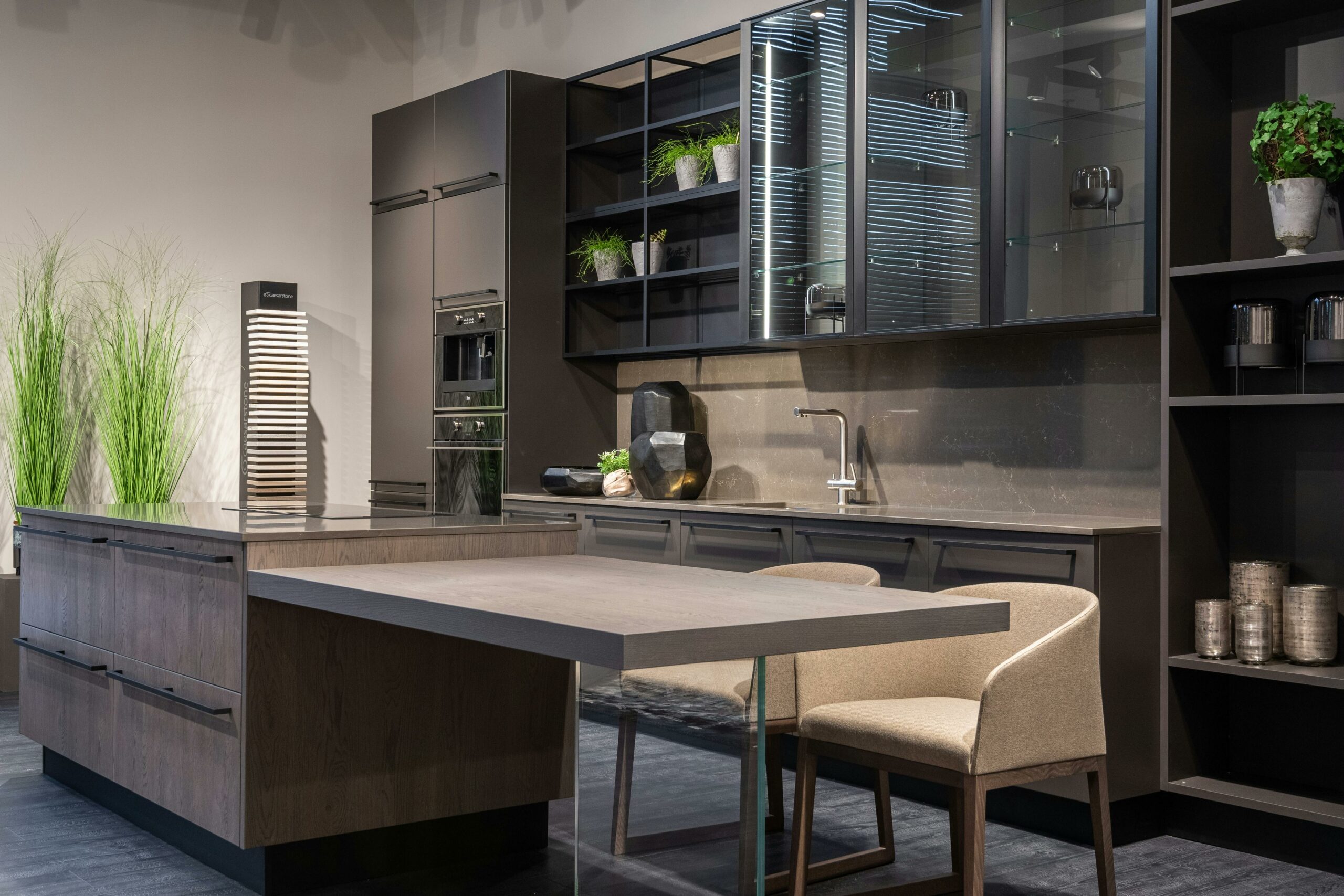
Pros and Cons of DIY Kitchen Countertop Replacement
Replacing your kitchen countertop can be a daunting task, and one of the first decisions you’ll need to make is whether to tackle the project yourself or hire professionals. There are pros and cons to both options, and it’s important to weigh them carefully before making a decision.
Pros of DIY Kitchen Countertop Replacement:
- Cost Savings: One of the main advantages of DIY countertop replacement is the potential for cost savings. By doing the work yourself, you can avoid labor costs and potentially save a significant amount of money.
- Control and Flexibility: When you handle the project yourself, you have complete control over the design, materials, and timeline. You can choose the exact countertop material and style that you want, and you can work at your own pace.
- Satisfaction and Personal Achievement: Completing a DIY kitchen countertop replacement can be incredibly satisfying and give you a sense of personal achievement. It allows you to take ownership of your project and see the results of your hard work.
Cons of DIY Kitchen Countertop Replacement:
- Time and Effort: DIY countertop replacement requires a significant investment of time and effort. You’ll need to research and learn the necessary skills, gather the tools and materials, and dedicate several days or even weeks to complete the project.
- Skills and Experience: Depending on the complexity of the countertop replacement, you may need specialized skills and experience to ensure a successful outcome. Mistakes can be costly and may result in the need to hire professionals to fix any issues.
- Quality and Durability: While DIY projects can be rewarding, the quality and durability of the finished product may not match that of professional work. Improper installation or lack of experience could lead to issues with functionality and longevity.
Ultimately, the decision to pursue a DIY kitchen countertop replacement depends on your skill level, available time, and budget. If you feel confident in your abilities and are willing to invest the necessary time and effort, DIY can be a cost-effective and rewarding option. However, if you have concerns about your skills or want to ensure a high-quality result, hiring professionals may be the better choice.
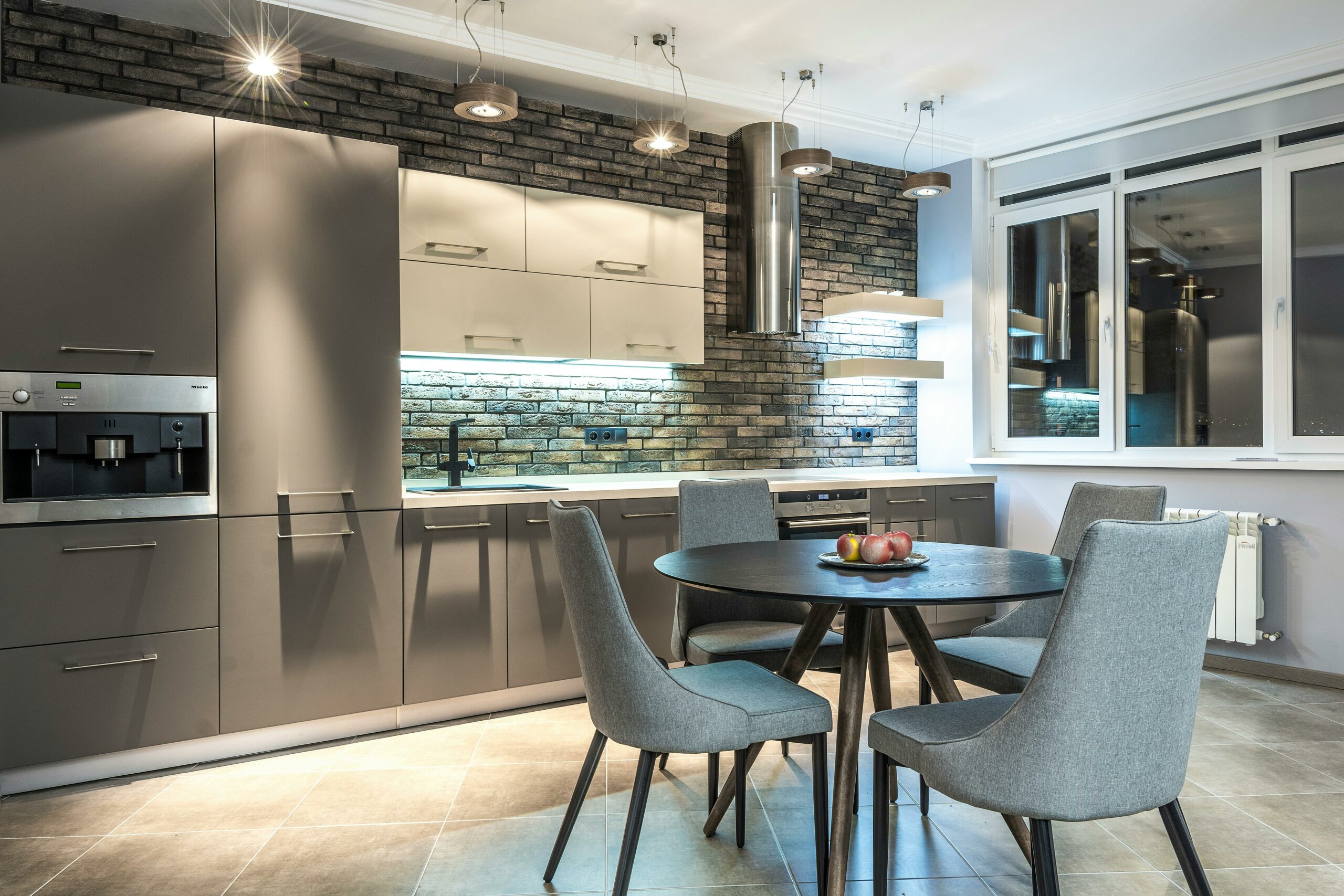
Hiring Professionals for Kitchen Countertop Replacement
When it comes to kitchen countertop replacement, hiring professionals can be a wise decision. While some homeowners may consider the option of DIY countertop replacement, there are several advantages to entrusting the job to experienced professionals.
Expertise and Experience
One of the primary reasons to hire professionals for kitchen countertop replacement is their expertise and experience in the field. Professional countertop installers have the knowledge and skills to handle the installation process efficiently and effectively. They are familiar with different countertop materials and can provide valuable advice on choosing the best option for your kitchen.
Quality Workmanship
Another benefit of hiring professionals is the assurance of quality workmanship. Professional countertop installers have the necessary tools and equipment to ensure precise measurements and a seamless installation. They can also address any potential issues that may arise during the installation process, ensuring that the countertops are installed correctly and securely.
Time and Cost Savings
While it may seem cost-effective to tackle a kitchen countertop replacement project on your own, it can actually end up costing you more in the long run. DIY projects often require the purchase or rental of specialized tools, which can add to the overall cost. Additionally, inexperienced DIYers may make mistakes that result in costly repairs or replacements down the line. By hiring professionals, you can save both time and money by avoiding these potential pitfalls.
Peace of Mind
One of the intangible benefits of hiring professionals for kitchen countertop replacement is the peace of mind it brings. Knowing that your countertops are being installed by experienced professionals can alleviate any stress or worry associated with the project. You can rest assured that the job will be done right the first time, allowing you to enjoy your new countertops without any concerns.
In conclusion, when it comes to kitchen countertop replacement, hiring professionals offers several advantages. Their expertise, experience, quality workmanship, time and cost savings, and peace of mind make them a valuable resource for homeowners looking to upgrade their kitchen countertops.
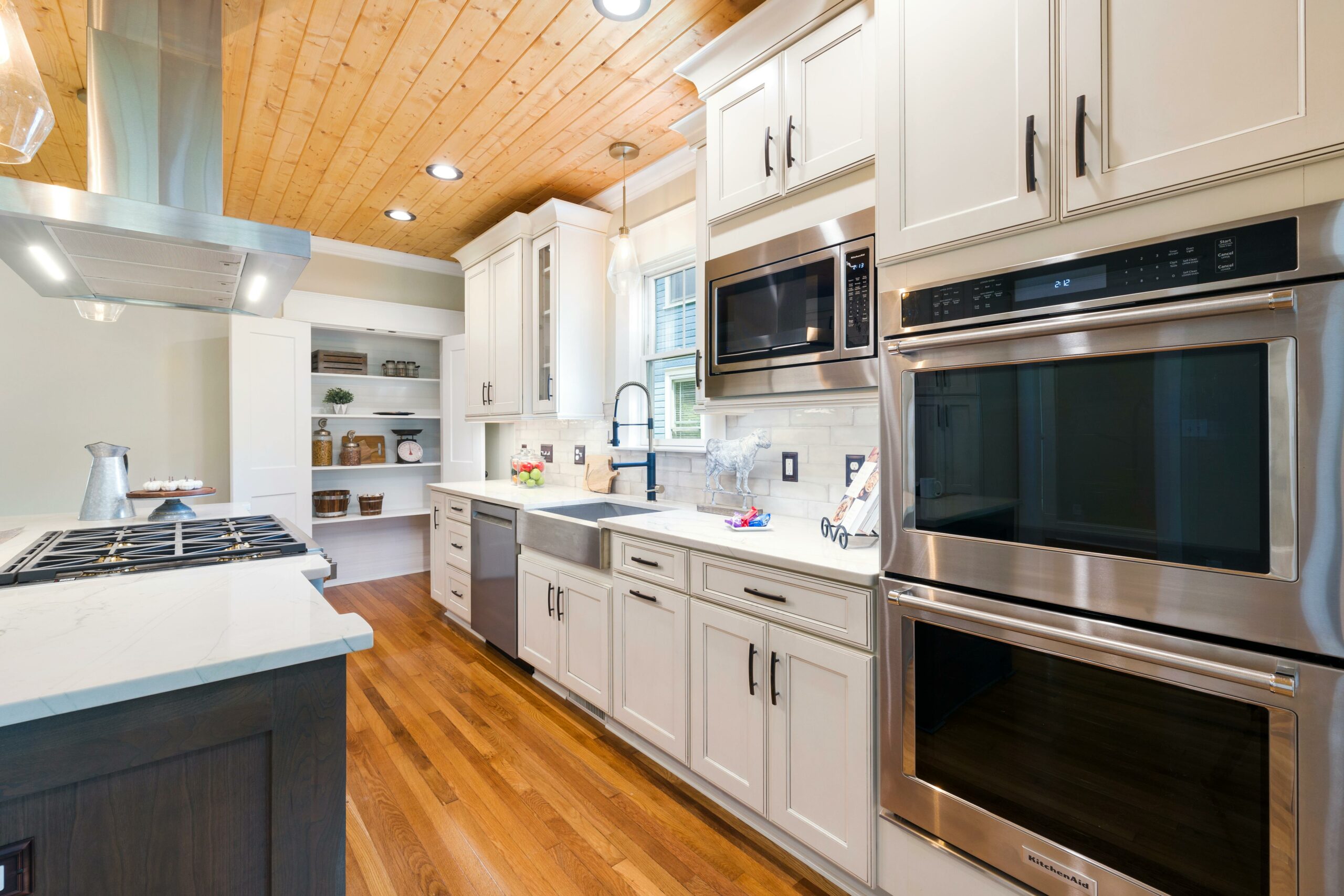
Trends in Kitchen Countertop Replacement
In recent years, there have been some exciting trends in kitchen countertop replacement that homeowners are embracing. These trends not only enhance the functionality of the kitchen but also add a touch of style and elegance. Here are some of the top trends in kitchen countertop replacement:
1. Quartz Countertops
Quartz countertops have gained immense popularity in recent years. They are known for their durability, low maintenance, and wide range of colors and patterns. Quartz countertops are made from a combination of natural quartz stone and resin, making them resistant to stains, scratches, and heat. They are also non-porous, which means they do not require sealing like other materials.
2. Marble-look Countertops
Marble countertops have always been a classic choice for kitchens. However, the high cost and maintenance requirements have made homeowners look for alternatives. The trend of marble-look countertops has emerged as a popular choice. These countertops are made from materials like quartz or porcelain that mimic the look of marble but offer better durability and ease of maintenance.
3. Waterfall Countertops
Waterfall countertops are a sleek and modern trend that adds a unique touch to the kitchen. This design involves extending the countertop material vertically down the sides of the cabinets, creating a seamless and continuous look. Waterfall countertops are commonly seen in kitchens with an open floor plan, as they create a visual statement and a sense of continuity.
4. Concrete Countertops
Concrete countertops have become a popular choice for homeowners who want an industrial or contemporary look in their kitchens. These countertops are customizable, as they can be poured and shaped to fit any kitchen design. Concrete countertops are durable, heat-resistant, and can be sealed to prevent stains. They offer a unique and modern aesthetic to any kitchen space.
5. Dark-colored Countertops
In recent years, there has been a shift towards darker-colored countertops in kitchen designs. Dark-colored countertops, such as black or dark gray, create a bold and dramatic look. They provide a striking contrast against light-colored cabinets and create a sense of depth and sophistication in the kitchen. Dark-colored countertops are also known for their ability to hide stains and scratches.
6. Eco-friendly Countertops
With the increasing focus on sustainability, eco-friendly countertops have gained popularity. These countertops are made from recycled materials, such as glass, paper, or bamboo. They offer a unique and eco-conscious alternative to traditional countertop materials. Eco-friendly countertops are not only environmentally friendly but also durable and easy to maintain.
These are just a few of the trends in kitchen countertop replacement that homeowners are embracing. When choosing a countertop for your kitchen, consider your personal style, budget, and maintenance requirements. With the wide range of options available, you can find a countertop that not only meets your functional needs but also adds a touch of style to your kitchen.
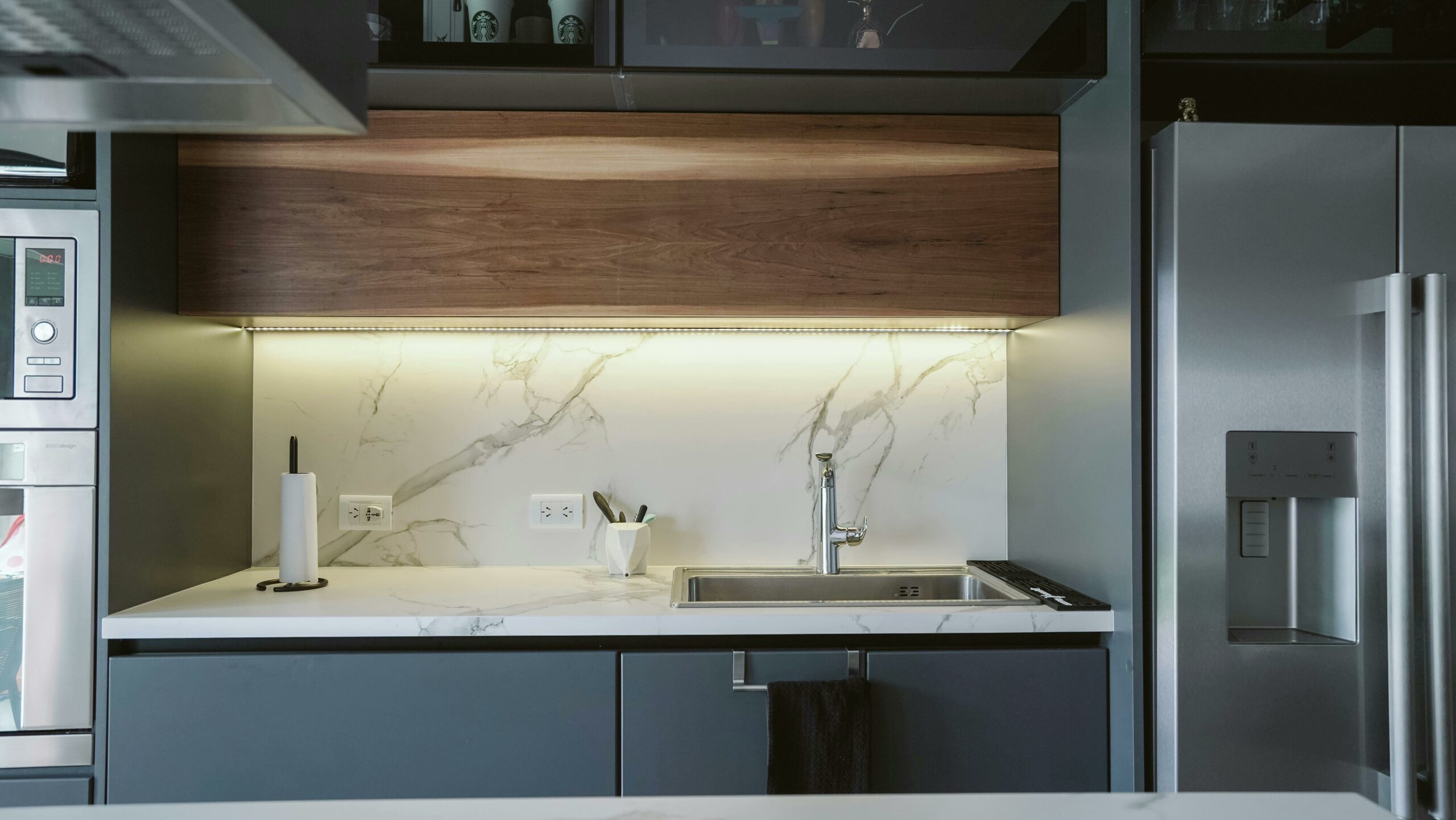
Impact of Kitchen Countertop Replacement on Home Value
Replacing your kitchen countertop can have a significant impact on the value of your home. It is one of the most visible and frequently used surfaces in the kitchen, and potential buyers often pay close attention to its condition and quality.
When you replace your kitchen countertop with a high-quality material, it can enhance the overall aesthetic appeal of your kitchen. This can make your home more attractive to potential buyers and increase its market value.
Additionally, a new kitchen countertop can also improve the functionality and usability of your kitchen. If you choose a material that is durable, easy to clean, and resistant to stains and scratches, it can make your kitchen more appealing to buyers who value convenience and low maintenance.
Furthermore, a kitchen countertop replacement can give your home a more updated and modern look. If your current countertop is outdated or worn out, replacing it with a more contemporary material can make your kitchen feel fresh and stylish. This can be a major selling point for buyers who are looking for a modern and updated home.
Overall, investing in a kitchen countertop replacement can significantly increase the value of your home. It not only improves the aesthetics and functionality of your kitchen but also makes your home more appealing to potential buyers. Whether you’re planning to sell your home in the near future or simply want to enjoy a beautiful and functional kitchen, replacing your countertop is a worthwhile investment.

